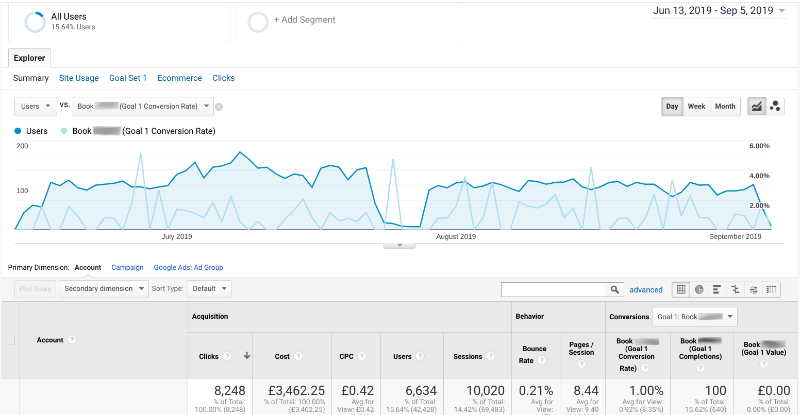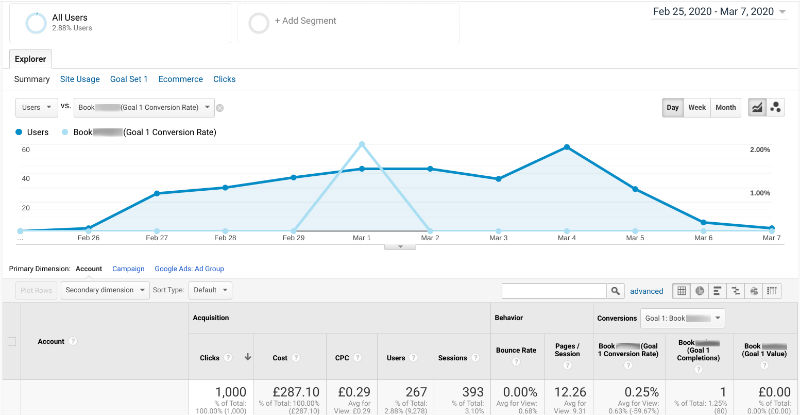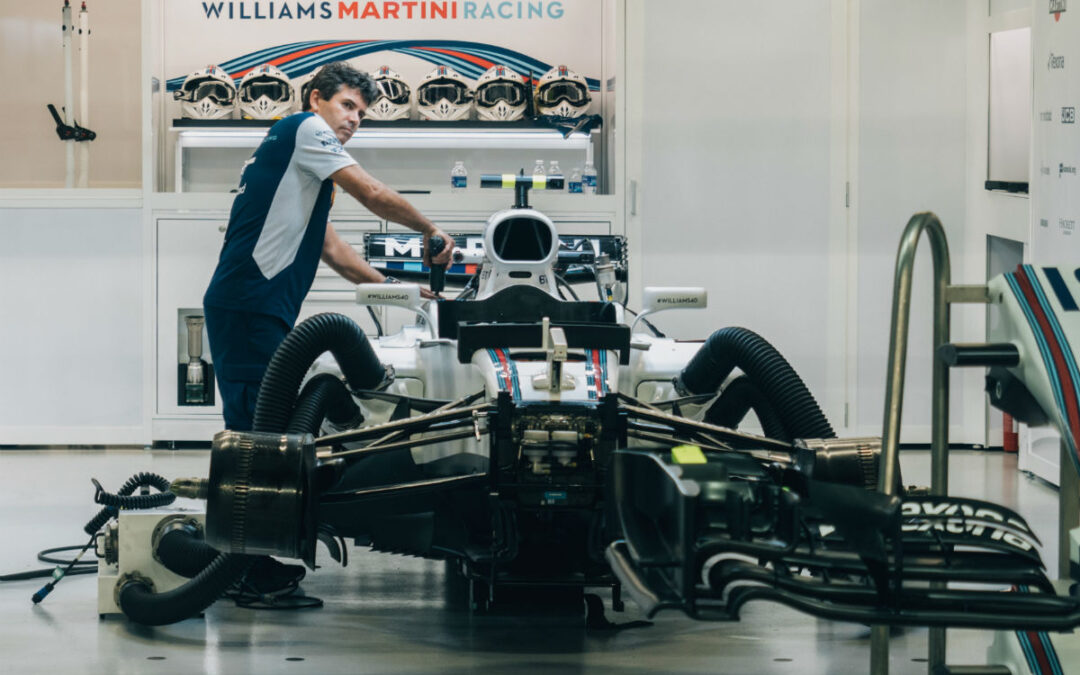Paid search PPC campaigns in Google and Bing Ads are often the single largest digital marketing expense for many companies, and agency fees can add up. Should you just use the self-guide wizards that Google provides to build your campaigns? In this case study, we compare the performance of campaigns built by an agency versus those built simply following Google’s own campaign creation wizards.
Should You Trust Google to Build Your PPC Campaigns?
Google’s artificial intelligence capabilities are improving every single day, so why shouldn’t you trust Google to help you build campaigns? Whether you have existing campaigns or are considering getting started with PPC, you may be questioning the value of professional advice and assistance. Sure, larger businesses have the budgets and need to make sure their search engine marketing campaigns are at peak performance, but with smaller budgets does it really matter?
Background on our Agency vs Amateur Case Study
This case study follows a charity organization which in mid-2019 engaged us to run paid search campaigns for several weeks. As their budget ran dry, they pulled back. They tried Google Ads again in early March 2020, this time building smart campaigns and following the account-building wizards in the console. Points to consider:
- Agency campaigns ran from June 13 to September 5, 2019
- Amateur campaigns ran from February 25 to March 7, 2020
- Agency campaigns used a single topic per adgroup structure (a simplified SKAG build)
- Amateur campaigns were smart campaigns set up in-console
- Both campaigns share similar keyword lists
- Both campaigns combine branded and non-branded keywords and terms
- Both campaigns share similar ad copy
- Both campaigns use the same goal being monitored
- This goal is also tracked as an e-commerce goal, giving us revenue figures (hidden)
PPC Agency Performance Results
Below are the results of our agency-built PPC campaigns

Google PPC Agency Results
The professionally-built PPC campaigns had 8,248 clicks and delivered 100 goal completions at a cost of £3,462.25. This gives us a cost-per-click (CPC) of £.42 and a cost-per-lead/cost-per-acquisition (CPL/CPA) of £34.62.

PPC agency assisted conversion results
The professionally-built PPC campaigns also registered a further 136 assisted goal completions. This gives us an adjusted CPL/CPA of £14.67.
Amateur Smart Campaigns Performance
Below are the results of the amateur-built PPC campaigns

Google PPC Smart Campaign Performance
The amateur-built smart campaigns had 1,000 clicks and delivered 1 goal completion at a cost of £287.25. This gives us a cost-per-click (CPC) of £.29 and a cost-per-lead/cost-per-acquisition (CPL/CPA) of £287.25.

Amateur Smart Campaign assisted conversion results
The amateur-built smart campaigns also registered a further 2 assisted goal completions. This gives us an adjusted CPL/CPA of £95.75.
Agency vs Amateur PPC Results
Just looking at these results broadly, we can see significant performance differences between the agency-built and amateur-built search engine marketing campaigns. This is despite following Google’s own guidelines in the console, and using the same keywords, landing pages and ad copy. What happened? The professionally-built campaigns delivered a £14.67 cost per acquisition, while the smart campaigns delivered a much worse £95.75.
We also have revenue figures that can be attributed to these goal conversions, but actual numbers will remain anonymous. The results are staggering, however. The professionally-built, paid campaigns had a return on ad spend (ROAS) of 3:1 using last-click attribution, and 5:1 when including assisted conversions. The smart campaigns? Less than .3 when including assisted conversions.
You will also see much more stable performance coming from the agency campaigns, which is welcome by any business relying on web traffic. The smart campaigns delivered a lower CPC, but that simply resulted in lower quality traffic as well. It’s important to consider CPC and what effect it has, but in a vacuum it’s not a particularly meaningful metric. The google algorithm may have been pushing for more clicks to gather data, similar to the goose egg delivered by the automated bidding campaigns we tested for a real estate firm.
So What Happened, Then?
How can using the same keywords, landing pages and ad copy result in such huge performance differences? The agency campaigns paid for themselves multiple times over, while the “smart” campaigns were failing to come close to breaking even. This is because PPC campaigns remain complex and there are many factors that play a role. Negative keywords in particular can play a huge role here, and tools to automate this issue remain limited and dependent on data (read: inefficient budget spend).
The fact remains that while Google’s AI capabilities continue to grow and impress every day, these capabilities are not translating to performance in PPC. Tools like BERT and RankBrain serve to improve search results for users, who in the end are Google’s primary users and source of revenue. Professional experience and expertise remain critical to maximizing your success in PPC.
What About Coronavirus?
The smart campaign test took place as fears over the Coronavirus spreading in the West first started taking hold. This no doubt had a negative effect on overall conversion rates for the campaigns. Up until the first week of March, we have seen fairly stable results from existing clients, followed by sharp drops starting in the 2nd week of March. This coincides with the first reported death in the UK on March 5th. Anecdotal reports reinforce this drop off in the 2nd week of March, with colleagues reporting 65%+ drops in leads/conversions. The first week, where half our smart campaign data comes from, still saw mostly stable results, but the effect should be considered when looking at the data.
What Should You Do and What Are Typical PPC Agency Rates?
Hire an agency, of course! But in all seriousness, when reviewing the performance of your paid digital marketing channels or determining whether or not to start investing in PPC, agency fees are a consideration like any other. Typical agency rates will usually be based (at least in part) on your budget, in the range of 10% to 20%. Husaria Marketing offers competitive rates with accessible fees for small businesses with limited budgets and the ability to scale effectively and efficiently.



